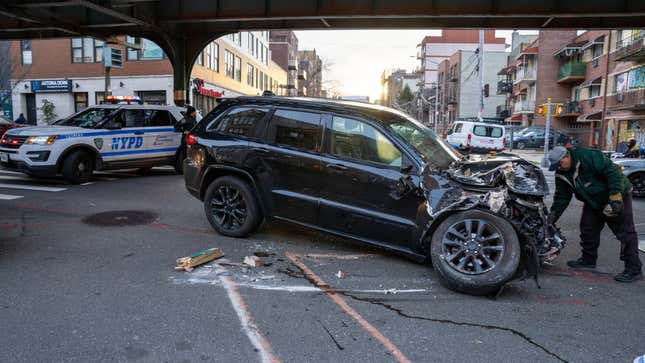
Since 2020, the number of road deaths in the United States has been rising at a truly staggering rate. There isn’t a singular cause behind this drastic shift. Instances of drunk driving and speeding are both up. Seatbelt use is down. But why? The New York Times took a deep dive into the deadly dilemma plaguing the nation with the expert guidance of Deborah Kuhls, a professor of surgery at U.N.L.V. and trauma surgeon.
The state of safety on American roads, like a lot of society, was dramatically transformed in 2020. It’s not clear how much of an influence the COVID-19 pandemic had, but it has clearly played a factor in how drivers changed their behavior behind the wheel. The Times lays out the present situation:
“Examine a chart of year-over-year car fatalities in the United States, and you’ll encounter two significant spikes — three, counting the one we are living through today. The first arrived in the earliest decades of the 20th century, as cities were overrun by hordes of untrained drivers; the second hit at the midcentury mark, with the creation of the freeway system and the introduction of powerful new vehicles like the Ford Mustang.”
“From 2020 to 2021, the National Highway Traffic Safety Administration has since calculated, the number of crashes in the United States soared 16 percent, to more than six million, or roughly 16,500 wrecks a day. The fatality figures were somehow even worse: In 2021, 42,939 Americans died in car crashes, the highest toll in a decade and a half. Of those deaths, a sizable portion involved intoxicated or unrestrained drivers or vehicles traveling well in excess of local speed limits.”
No stone is left unturned. The increase in vehicle size, the country’s crumbling roads, the increasing accessibility of high-performance vehicles, the growing trend of illegal street racing, the emergency of distracted driving and even driver psychology are all covered in an attempt to get to the heart of the crisis. Be sure to read the entire piece here.

